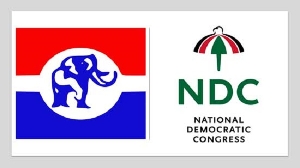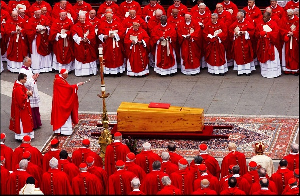In a nation where democracy is cherished and electoral integrity is paramount, the recent rejection of the National Democratic Congress' (NDC) proposal for a forensic audit by Ghana's Electoral Commission has sparked intense debate and raised eyebrows across the political landscape.
This decision, steeped in layers of political significance, has ignited discussions surrounding transparency, accountability, and the very essence of fair elections in Ghana.
As the country gears up for the December 7 elections, the implications of this rejection resonate deeply, drawing in citizens, political analysts, and activists alike.
At the heart of this discord lies the NDC's proposal for a forensic audit of the 2024 Provisional Electoral Register and EC's IT system, a move the party argues is essential to restore public confidence in the electoral process.
However, the EC's outright rejection of this proposal has raised eyebrows and sparked a flurry of questions: What were the implications of this decision, and how might it affect the trust of the electorate in the upcoming elections?
The rejection of the National Democratic Congress' (NDC) proposal for a forensic audit carries significant implications for the political landscape, electoral integrity, and public trust in the democratic process.
First and foremost, this decision exacerbates the existing tensions between the two major political parties in Ghana. The NDC has long voiced concerns about the transparency and credibility of electoral processes, and the dismissal of their audit proposal could be perceived as a refusal to address these legitimate apprehensions.
This may further entrench the NDC's narrative of distrust towards the Electoral Commission, potentially mobilising their base and leading to increased political activism. Moreover, the rejection raises questions about the commission's commitment to ensuring fair elections.
Critics argue that by not embracing an independent audit, the Electoral Commission risks giving the impression of opacity, which could undermine public confidence in its ability to conduct free and fair elections.
This skepticism can have a ripple effect, discouraging voter participation and engagement, as citizens may question whether their votes truly matter in a system perceived as flawed. Economically, the rejection could also yield ramifications. Investors and international observers often assess a country's political stability before committing resources.
A perceived lack of transparency and accountability in electoral processes might deter investment, as potential investors often seek environments where the rule of law and democratic norms are upheld.
Finally, this decision sets a precedent for future electoral disputes. A refusal to explore independent audits could signal to both the ruling party and the opposition that electoral grievances may not be adequately addressed, potentially leading to a cycle of distrust in subsequent elections.
And as Ghana approaches future electoral cycles, the implications of this rejection will likely resonate, shaping the strategies of political parties and the expectations of the electorate as they seek to navigate a complex political terrain.
Opinions of Friday, 20 September 2024
Columnist: Anthony Obeng Afrane
Unpacking the Controversy: Why is Ghana's Electoral Commission rejecting the NDC's forensic audit proposal?
Opinions














